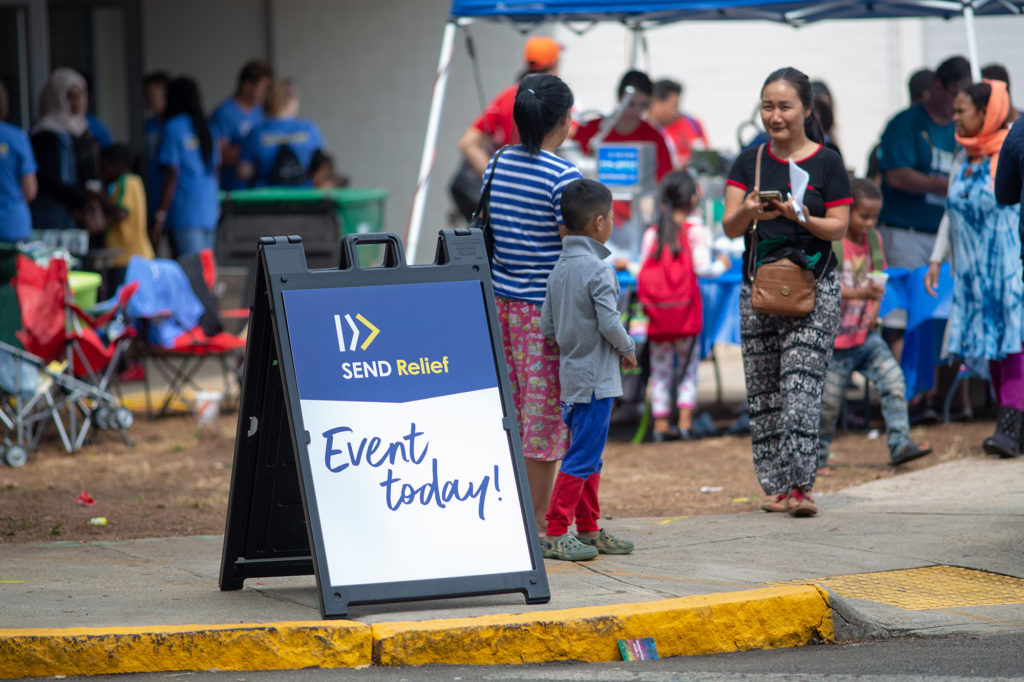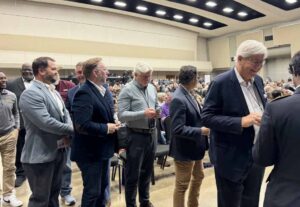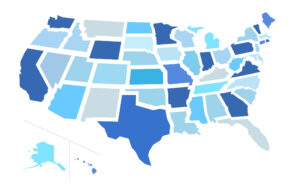
WASHINGTON (BP) – The decision to increase dramatically the number of refugees to be welcomed into the United States will provide Christians with important opportunities for Gospel witness and service to those fleeing oppression, Southern Baptist leaders said.
President Biden announced Feb. 4 he would raise the ceiling for refugees to 125,000 in the federal fiscal year that will begin in October and issued an executive order designed to rebuild the resettlement program. The president, as well as agencies that help resettle refugees in this country, acknowledged the rebuilding process will take awhile. The new cap far surpasses the ceiling of 15,000 set by the Trump administration during its final year.
“It’s the government’s role to determine the immigration and refugee resettlement policy for our nation,” Send Relief President Bryant Wright told Baptist Press in written comments. “It’s the Church’s role to show the love of Christ in hopes that their hearts will be open to receiving the greatest expression of God’s love through salvation in Jesus Christ.”
Send Relief is the Southern Baptist Convention’s compassion ministry performed through the cooperative effort of the North American Mission Board (NAMB) and International Mission Board. Care for refugees is one of Send Relief’s focus areas.
“Jesus commanded the Church to go and take the Gospel to the nations,” said Wright, a former SBC president. “So, when the nations come to where we live in the United States, what an opportunity that God is giving the church to show Christ’s love!”
Russell Moore, president of the Ethics & Religious Liberty Commission, said he prays Christians “will lead the revitalization of America’s commitment to be a beacon of freedom and safe harbor for the oppressed and persecuted.”
“Our advocacy for religious minorities in peril around the world, whether they be Uyghurs in China or Christians in Syria, is a priority of our work at the ERLC,” said Moore, who expressed his gratitude for Biden’s actions. “Now is the time to rebuild America’s refugee resettlement program. … I urge the administration to take the next step and officially raise the refugee ceiling.”
The newly announced refugee cap follows four years of record-low ceilings established by President Trump – from 45,000 in the 2018 fiscal year to 30,000 in 2019 to 18,000 in 2020 and 15,000 in the current year. In the decade prior (2008-17), the United States welcomed an average of about 67,000 refugees each year, according to the Pew Research Center. The number of admissions often is less than the ceiling. The record high for the cap and admissions is 232,000 and 207,000, respectively, in 1980, Pew reported.
The United States’ reduction in the ceiling has come at a time when strife in multiple countries has resulted in massive numbers of refugees. As of mid-2020, an estimated 26.3 million people were considered refugees, according to the U.N. High Commissioner for Refugees (UNHCR). More than 80 million people, including 30 to 34 million children, were forcibly displaced, the UNHCR reported.
More than 60 percent of refugees, as well as Venezuelans who were displaced abroad, were from five countries, the UNHCR reported. In addition to Venezuela (3.7 million people), they were the Syrian Arab Republic (6.6 million), Afghanistan (2.7 million), South Sudan (2.3 million) and Myanmar (one million).
The United Nations has defined a refugee as “someone who is unable or unwilling to return to their country of origin owing to a well-founded fear of being persecuted for reasons of race, religion, nationality, membership of a particular social group, or political opinion,” according to its 1951 Refugee Convention.
Refugees must pass a stringent screening process that includes multiple biometric and biographic checks and an interview before being eligible to enter the United States, according to 2020 guidelines by the U.S. Citizenship and Immigration Services. The processing time before refugees enter this country averages 18 months to three years, the Christian humanitarian organization World Relief reported.
The Southern Baptist history of ministering to people fleeing to the United States includes the sponsoring of nearly 15,000 refugees from 1975 to 1985, which resulted in the planting of more than 280 ethnic churches, according to a resolution approved by messengers to the 2016 SBC annual meeting.
That same resolution, which was reaffirmed by messengers in 2018, urged “Southern Baptist churches and families to welcome and adopt refugees into their churches and homes as a means to demonstrate to the nations that our God longs for every tribe, tongue, and nation to be welcomed at His throne.”
Send Relief served 13,933 people in its work with refugees and internationals in North America in 2020. It mobilized more than 850 people to serve in refugee ministry. Those numbers do not include overseas work with refugees.
Southern Baptists in Montgomery, Ala., are among those who serve refugees. The Montgomery Baptist Association collaborates with First Baptist Church in Montgomery to minister to 250 to 300 international families, including refugees, from 42 countries, said Susan West, director of the association’s Conversational English Ministry. More than 30 churches participate in the ministry, and others support the work financially.
During the 2019-20 school year, the ministry served 13 refugee households before the COVID-19 pandemic, West said. It has ministered to at least six refugee families this school year. The refugees during these two years have come from three continents, she said.
“As followers of Jesus, we are called to welcome the strangers among us,” West said in an email interview. “No passport is needed to do the Great Commission in our own neighborhoods. The world is here!”
The practical ministry to refugees and other internationals includes English classes, as well as preschool childcare and transportation to the classes for many families, West said. It also consists of a citizenship class, the opportunity to grow food in a community garden and trips to museums and other local sites. The volunteers also accompany families to medical appointments and parent conferences at school as requested. They cook and eat with the refugees and other internationals and otherwise spend time developing relationships, she said.
Each family is offered a Bible in its “heart language,” and each child receives a copy of the Jesus Storybook Bible. Their reading of the Bible prompts questions of the volunteers, West said.
Send Relief encourages churches to proclaim the Gospel while addressing practical needs. In addition to care for refugees, Send Relief’s other focus areas are fighting human trafficking, protecting children and families, strengthening communities and responding to crisis.
Working through various partners, Send Relief administered more than 700 projects affecting almost 10,000 communities last year, aiding 1.4 million people, according to a NAMB report in December. Outside North America, about 500,000 people heard the Gospel through Send Relief’s ministry. More than 37,000 people came to faith in Jesus, and more than 380 churches were started as a result, according to the report.














